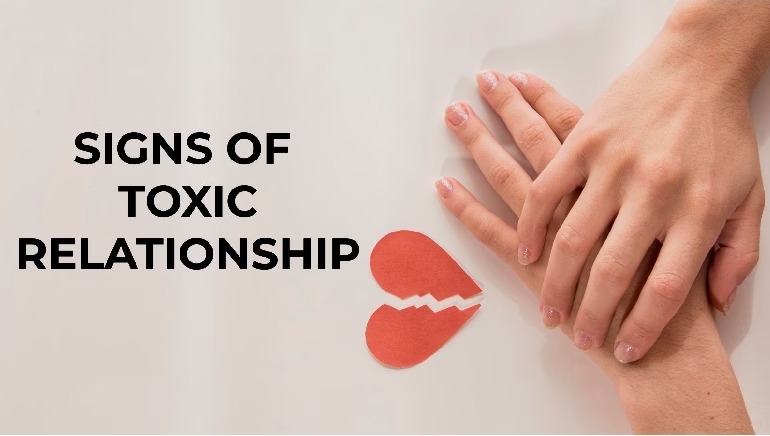
A toxic relationship is characterised by behaviours, attitudes, and dynamics that are harmful to one or both individuals involved.
Here are ten signs that may indicate you’re in a toxic relationship:
1.Constant Criticism:
If your partner consistently criticizes you, belittles your achievements, or undermines your self-esteem, it could be a sign of toxicity.
2. Lack of Trust:
Trust is crucial in any healthy relationship. If you feel constantly suspicious or distrustful of your partner, or if they don’t trust you, it’s a red flag.
3. Isolation:
Toxic partners may isolate you from friends, family, or other support networks, making you dependent solely on them for validation and companionship.
4. Manipulation:
Manipulative behavior, such as guilt-tripping, gaslighting, or emotional blackmail, is a clear sign of toxicity.
5. Control:
Toxic partners often seek to control aspects of your life, from your finances and social interactions to your personal choices and activities.
ALSO READ: Five reasons your body reacts after eating shrimp
6. Lack of Communication:
Communication is key in healthy relationships. If you find it difficult to communicate openly and honestly with your partner without fear of judgment or retaliation, it’s a warning sign.
7. Constant Drama:
If your relationship feels like a rollercoaster ride of highs and lows, with constant drama, arguments, or tension, it may be toxic.
8.Jealousy and Possessiveness:
Excessive jealousy or possessiveness can indicate insecurity and control issues, leading to toxicity in the relationship.
9. Lack of Personal Growth:
Healthy relationships should support personal growth and development. If you feel stagnant or inhibited in your personal growth because of your partner, it’s a cause for concern.
10. Physical or Emotional Abuse:
Any form of physical violence, verbal abuse, or emotional manipulation is a clear indication of a toxic relationship and should not be tolerated.
Note: Recognising these signs is the first step towards addressing toxicity in a relationship.
If you identify with any of these signs, it may be time to seek support from friends, family, or a professional counsellor.










